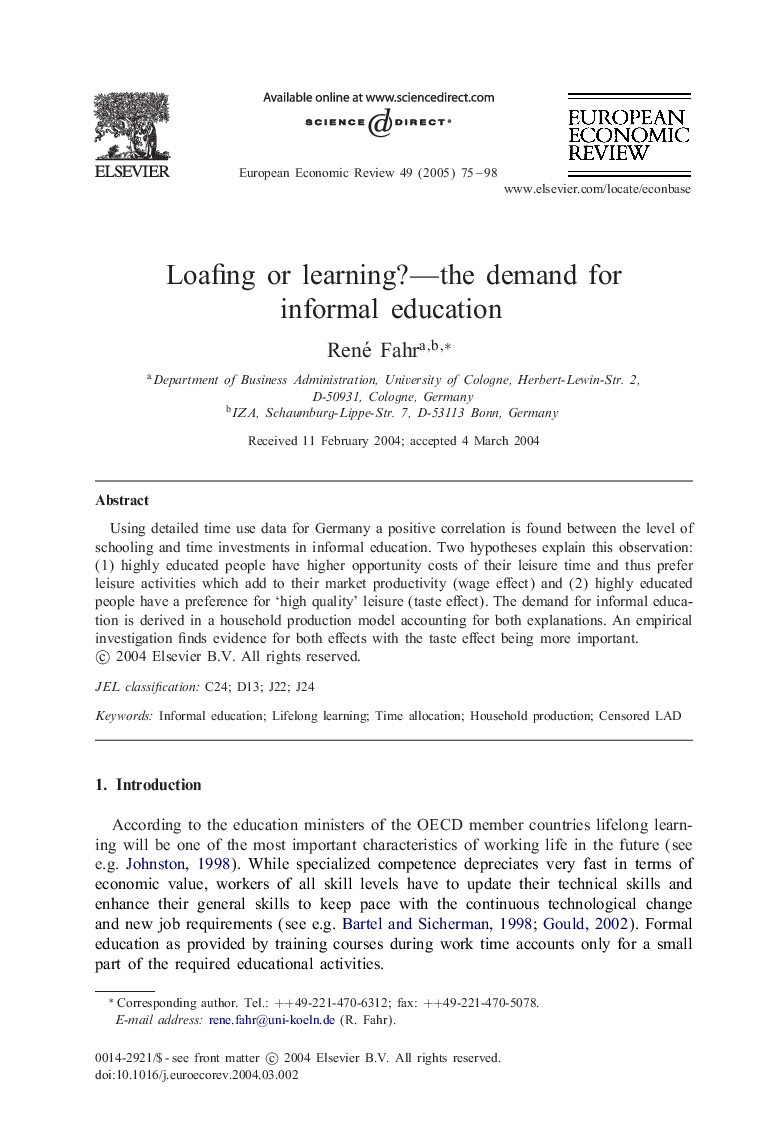| Article ID | Journal | Published Year | Pages | File Type |
|---|---|---|---|---|
| 9550917 | European Economic Review | 2005 | 24 Pages |
Abstract
Using detailed time use data for Germany a positive correlation is found between the level of schooling and time investments in informal education. Two hypotheses explain this observation: (1) highly educated people have higher opportunity costs of their leisure time and thus prefer leisure activities which add to their market productivity (wage effect) and (2) highly educated people have a preference for 'high quality' leisure (taste effect). The demand for informal education is derived in a household production model accounting for both explanations. An empirical investigation finds evidence for both effects with the taste effect being more important.
Related Topics
Social Sciences and Humanities
Economics, Econometrics and Finance
Economics and Econometrics
Authors
René Fahr,
